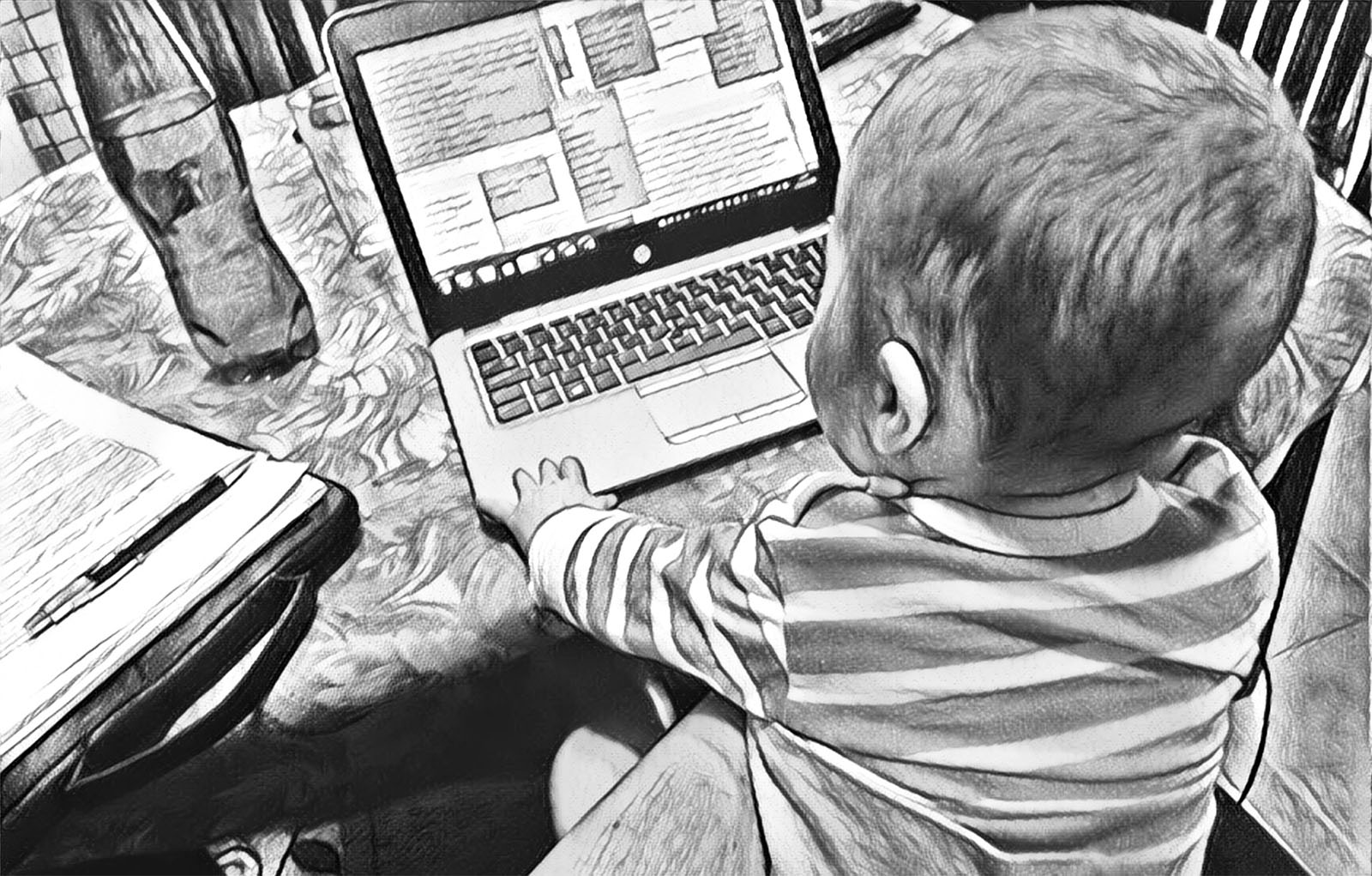
Spoiler alert – I don’t know! But I do know that balancing between family and work is always problematic, also in the academic community. My journey towards parenthood started last year, at the same time with my PhD studies. On top of that, our little family left “life as we knew it” behind and moved from Finland to the UK as the H2020-MSCA-ITN rules require transnational mobility. While my experiences are not very dramatic – at least not in comparison to Dr. Rebecca M. Calisi’s horror story on her first conference attendance only few weeks after giving birth – there has been a number of challenges after returning to work after a rather short maternity leave. I have conducted research interviews while my 7-week-old-daughter was looked after by her dad, met my supervisors while she had a nice nap wrapped in a baby sling and dragged my whole family to Portugal for a research secondment when she was 5-months-old.
So what have I learned about being a mum and an early stage researcher? At least that I could not have done this alone. My PhD studies require commitment from the whole family. While my darling husband takes care of “the day shift” so that I can work, we also have the most complex travelling schemes for the grandparents just that I can attend conferences and training weeks. So if are lucky enough to have relatives or friends that are there for you, which is not always the case when living abroad, ask help whenever you need it. And say yes, when someone offers help, be it a homemade meal or fresh pair of eyes for proofreading your paper, because you have your hands full anyway.
Mountain of paperwork awaits
If you are having your baby abroad, it is best to start sorting the paperwork as soon as you can. Do not take things for granted: when you move to another county as an Early Stage Researcher, also your social secure will most likely change. The MSCA-ITN does not cover your parental leave, but it is your new employer’s responsibility. The benefits may be vary drastically between different countries, and though it is pointless to compare, there are pros and cons. In my case, the maternity leaves are way longer back home in Finland, but in the UK there’s more flexibility to decide when the parental leave starts. I was happy to work throughout the pregnancy and finally started my leave just two weeks before the due date.
“Hey didle-didle, the cat and the fiddle, my research jumped over the moon …”
Or did it? Even if your day-to-day life have become somewhat chaotic and you can’t get children’s songs out of your head, you can still keep things together. You have probably heard many scary stories about “the mommy brain”, but you will still be able to conduct research! And yes, the mommy brain got me as well, but even if I am not always sure what day it is or what happened yesterday, getting back to work soon after giving birth helped me a lot in resuming my research routine. I feel that it might have been more difficult after a longer break. And as in any other situation, if nothing makes sense, your supervisor(s) can take a look at your work – they will tell you if you’re making progress or not!
Deadlines are parents’ best friends
Everything is overwhelming for a new parent, not to mention approaching deadlines after countless sleepless nights. At the same time you have limited time to work, so there is no time for procrastination. Collaborating with your fellow ESRs or other members of the network might be just what you need. I found it relieving to share the workload with colleagues just when I was most tired: it is harder to give in when there is positive peer pressure and the others count on your input.
The conferences are not going anywhere
And most probably neither are you, as travelling has suddenly transformed from relaxing weekend-getaways to complex processes that takes weeks to plan. One of the benefits of MSCA programmes is that ESRs run constantly to new opportunities; master courses, seminars, conferences, etc. But for a new parent, these opportunities start very soon to look more like obligations. Do not be downhearted: there is no way you could have attended them all anyway, just go for the ones that are truly relevant for your research project – and sleep through the night in a quiet hotel room for a chance!
Get your nighttime boogie on!
Or whatever working routine that suits you. There are not many jobs without fixed working hours – congratulations, you have one of those! Before having a baby I did not even realise how flexible academic work is: where else you can work at 2 am just because you happen to be awake? No one minds if you finish your transcribing in the middle of the night if that is the best timing for you. I myself have benefitted from flexible working hours enormously, it has just been easier to divide working days to two or even three slots (the baby has to sleep at some point!)
“Plans are worthless, but planning is everything”
So plan ahead. But always have a plan B. And C. Because your baby will always come first, and as little as they might be, they tend to have a big influence on everything you do. I have always kept my calendar full, but suddenly there is much less space for anything else than the newborn. Have mercy on yourself, but be realistic: sometimes it just takes more time than you have expected to get things done or you just have to reschedule. Take it from working mum that not very long time ago messed up her timetable and walked out of the most interesting research interview saying “That is my baby crying outside, I have to go now.” What was the damage? As unprofessional that was, I actually got a longer time slot for the interview the week after and more data than I had expected.


